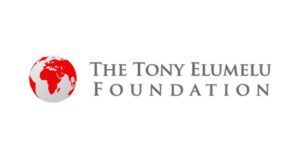Stakeholders urge CBN to exercise caution in reversal of monetary policy decisions
Some stakeholders have urged the Central Bank of Nigeria (CBN) to exercise caution in its reversal of certain monetary policy decisions.
The stakeholders made the call against the recent reversal of the policy banning sale for foreign exchange to importers of 43 items by the apex bank.
It was gathered that on the Oct. 12, the CBN lifted the ban on the issuance of forex for the importation of rice, vegetable oil, poultry products and several other items.
Importers of these items had been restricted from accessing foreign exchange since June 2015 by the CBN, under the leadership of Godwin Emefiele.
Reacting to the recent directive, the Manufacturers Association of Nigeria (MAN) advised the Federal Government to reverse the decision.
According to the South-West Zonal Vice-President of MAN, Dr Kamoru Yusuf, the decision will, on the long run, be harmful to the nation’s economy through looming job losses.
Yusuf said that the major problem at the moment was that demand was higher than supply in the FX market.
“Therefore, the reversal of the 43 items is a policy summersault, which is not only dangerous but also unhealthy for the nation’s economy,” he said.
The MAN vice president said that the reversal of the policy would impact negatively on the productive sector of the economy.
He also called for the immediate review of the policy surrounding operations at the free trade zones in Nigeria.
Yusuf said that policy had been subjected to serious abuses with little or no value addition to the economy and not generating FX to the country.
“It is observed that 60 percent of the goods coming into the country from Asia are finished products which can be valued around 800 million dollars, of which some of them are substandard,” he said.
Also, the Chairman of the Nigerian Economic Summit Group, Mr Niyi Yusuf, noted that monetary policies could not be used to tackle trade issues.
According to Yusuf, the competitiveness of our manufacturing industry needs to be improved by using appropriate policies, strategies, tools, and mechanisms.
“Not every issue can be addressed or solved using monetary policies,” he said.
Speaking in the same vein, Chairman, Oyo State Chapter of the Agricultural Development Farmers Association, Mr Salihu Imam, said that ordinarily if a government wants to protect local industries, it bans imports.
Imam said that the government should find ways to protect the local industries.
“The government must find ways to support the farmers.
“Commercial banks should give out loans to farmers at the rate of two per cent annually, they will pay.
“The move to lift the ban on those 43 items is one of those panic measures,” he said.
Also, the Vice Chairman of Basic Metal Sector of the Manufacturers Association of Nigeria (MAN), Mr Lekan Adewoye, said that the new CBN policy would kill the manufacturing sector barely struggling to survive.
Adewoye said that for items that could be produced in Nigeria, such manufacturers ought to be encouraged.
“Some of our members who have outrightly invested in backward integration will now start to regret this move, because everyone who can assess forex will claim to be an importer.
“This will force sincere manufacturers to close shop, thereby increasing the number of unemployed persons,” he said.
A member of the House of Representatives, Sada Soli, warned that the lifting of the ban on foreign exchange on 43 items by the CBN may ruin the local economy.
Soli said that the decision may lead to the closure of factories and ultimately erode the nation’s capacity to build the local economy.




